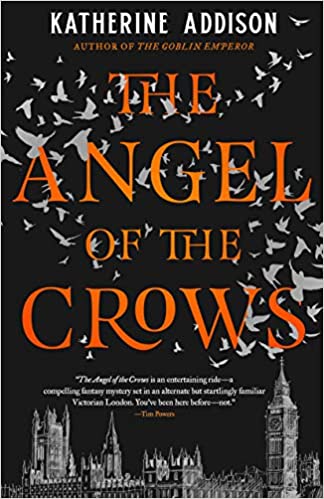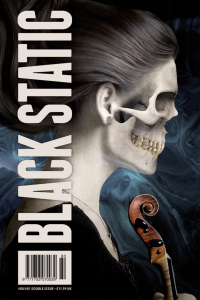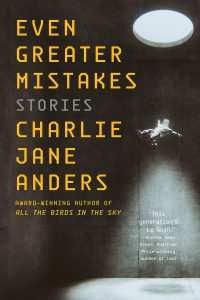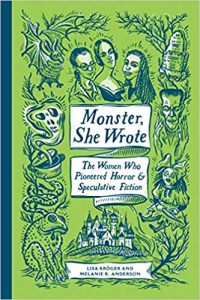Katharine Coldiron Reviews The Angel of the Crows by Katherine Addison
 The Angel of the Crows, Katherine Addison (Tor 978-0-76538-739-4, $27.99, 448pp, hc) June 2020.
The Angel of the Crows, Katherine Addison (Tor 978-0-76538-739-4, $27.99, 448pp, hc) June 2020.
According to Guinness World Records, Sherlock Holmes is the most frequently portrayed human character in literary history. One might think that The Angel of the Crows, a kind of anthology novel reimagining Holmes in an alternate London in which angels, hell-hounds, vampires, and a variety of other supernatural beings exist, would be tiresome. Sherlock has been done to death, portrayed by actors as varied as Benedict Cumberbatch, Jonny Lee Miller, and Robert Downey, Jr. just in the past decade. Katherine Addison has worked a minor miracle: her Holmes book is a delight. Although it follows some of Sir Arthur Conan Doyle’s best-known mysteries closely enough to be predictable, the way she chooses to interpret the characters and their actions renders the book as a whole fresh and surprising.
London, the late 1880s: Dr. J.H. Doyle has returned from service in Afghanistan badly wounded by one of the Fallen, former angels who have astonishing destructive powers. His savings are shrinking, and a friend introduces him to Crow, an eccentric angel seeking a roommate for his flat at 221 Baker Street. Crow calls himself the Angel of London, which is not possible; angels, in Addison’s imagining, are tied to public spaces like railway stations and churches, but not to cities on the whole. Crow was formerly the Angel of the Sherlock Arms, a building that was torn down, and a lovely little connection to the detective in the deerstalker.
Crow is a private detective with remarkable observational powers, childlike enthusiasm for mysteries, and habits which make him difficult for many people to abide. Dr. Doyle also has challenging habits – his war trauma makes him a poor sleeper – and a number of secrets that make him a bad prospect as a roommate. The pair build a remarkable friendship through the adventures of the book, and discover that their differences make them as well matched as two oddly shaped puzzle pieces. Addison’s tenderness for the characters is a boon to the book; Crow and Doyle exchange kindnesses and mutual respect much more notably than in other renderings of Holmes and Watson. As Doyle narrates, ”My childhood nurse would have said Crow lived too much on the outside of his skin. He was too easy to wound.” This is hardly the imperious Sherlock Holmes of other renderings, and The Angel of the Crows is a better book for it.
In chronological sections, Addison takes us through brief, altered versions of A Study in Scarlet, The Sign of the Four, The Hound of the Baskervilles, and a few other Holmes stories. The substance of the mysteries remains the same, which drains some of the fun out of reading, since a predictable mystery is hardly a mystery at all. However, the supernatural aspects of Addison’s novel, as well as certain changes in gender and character motivation, pep up the proceedings.
Plus, although the book’s sections contain discrete outings, there’s another familiar story running underneath the entirety of the novel: Jack the Ripper is terrorizing London prostitutes, and Crow and Doyle are trying to track him down. This means Addison has thrown another overexposed character from life and literature into her novel, but still, The Angel of the Crows never feels tired or lacks imagination. Part of the reason for this is Addison’s lively Victorian-style narration. She explains that ”’eavesdropping’ meant about as much to [Crow] as it meant to a fish,” and finishes a description of Inspector Lestrade thus: ”His hat, already in his hand, was the bowler it had surely been destined from birth to be.” For readers who love the dry humor and extensive detail of Victorian literature, this book is a real treat.
Of course, The Angel of the Crows is not going to land with every reader. The old-fashioned narration will not work for readers who like more velocity in their fantasy. The anthology aspect of the book and the way it follows the beats of the Holmes stories can grow tiresome if one is too familiar with his stories. Moriarty is used weirdly; saying more than this would give too much away, but really, this version of him is just plain odd. The conclusion of the Ripper story ties up so neatly that its slow burn across the book feels a little wasteful.
Still, this book has remarkable virtues. It freshens and updates Sherlock Holmes while retaining the tangled sentences and fanciful dialogue of Victorian English novels. It’s full of juicy supernatural surprises and kind, thoughtful characterization.
Things come out right in the end, which is an underrated quality for a novel at this global moment. In The Angel of the Crows, Addison has written a fine addition to Holmes-dom and a perfect distraction, familiar enough to be comforting and different enough to delight.
Katharine Coldiron is the author of Ceremonials (Kernpunkt Press), an SPD fiction bestseller. Her work as a book critic has appeared in The Washington Post, The Believer, The Guardian, and many other places. She lives in California and at kcoldiron.com.
This review and more like it in the July 2020 issue of Locus.
 While you are here, please take a moment to support Locus with a one-time or recurring donation. We rely on reader donations to keep the magazine and site going, and would like to keep the site paywall free, but WE NEED YOUR FINANCIAL SUPPORT to continue quality coverage of the science fiction and fantasy field.
While you are here, please take a moment to support Locus with a one-time or recurring donation. We rely on reader donations to keep the magazine and site going, and would like to keep the site paywall free, but WE NEED YOUR FINANCIAL SUPPORT to continue quality coverage of the science fiction and fantasy field.






